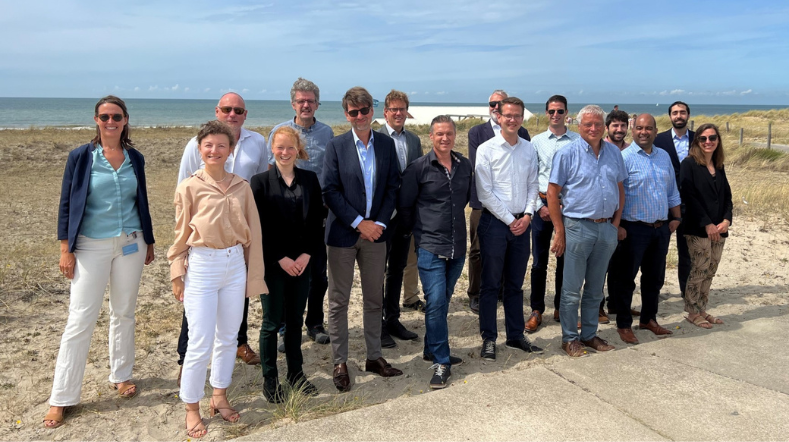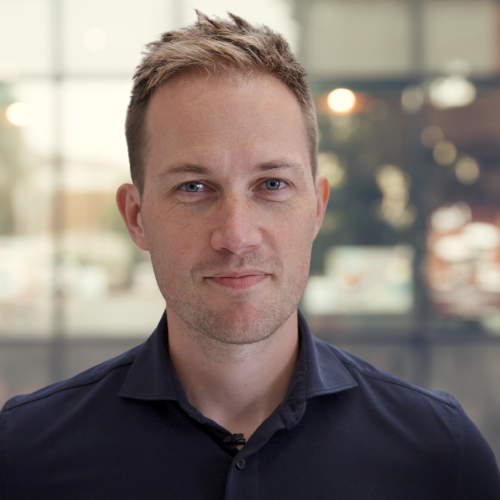
Fueling the energy transition with renewables
Sustainable fuels are needed for off-grid and sectors as aviation, shipping, heavy road transport and the chemical industry to go green. Renewable energy is needed to replace fossil fuels and reduce CO2 emissions. Yet, sustainable fuels currently make up less than 5% of all fuels consumed. TNO is working on technologies and applications that can help increase that percentage urgently.

Webinar 'Advancing renewable fuels: biofuels and e-fuels'
During this webinar we gave an update on the latest innovations, projects and facilities of biofuels and e-fuels. We also discussed challenges and opportunities in renewable fuels.
Two groups: biofuels and e-fuels
Renewable fuels essentially consist of two groups: biofuels and e-fuels. Biofuels are made from waste streams from agriculture and forestry or from crops specially grown on land that does not compete with food. The second group is formed by e-fuels, or electrofuels, a category of synthetic fuels mainly produced from captured CO2 combined with renewable hydrogen. They are also called renewable fuels from non-biological origin (RFNBO).
Indispensable in aviation, shipping, heavy road transport, chemical industry and off-grid sector
In the transport and chemical sectors, it is still difficult to supply energy in any way other than with the carbon-based fuels currently used. For instance, flying between continents on electricity or hydrogen isn’t possible just yet. The only long-term solution here is sustainable paraffin. Even for shipping, sailing long distances on electricity or hydrogen is still a long way off. In the chemical industry, sustainable and circular carbon sources are needed to continue manufacturing products in the future. This makes renewable fuels indispensable in the energy transition, with biomass playing an essential role in this. Research suggests that around 30% of primary energy consumption worldwide can be covered by biogenic sources.
Sustainable carbon sources
Fuels, steel, plastics, textiles – all products we use every day. And all of these will always require carbon, which is mostly fossil-based at the moment. So, the challenge is to find sustainable and circular carbon sources to continue making these products in the future. Between 2020 and 2050, the amount of carbon needed for manufacturing will grow from 550 to 1,150 megatons. Currently, as much as 88% of carbon comes from fossil sources. That has to get down to 0% in the next 30 years. During that period, the CO2-based carbon is expected to rise from 0.03% to 25%, bio-based from 8% to 20%, and recycling from 4% to 50%.
Pilot facilities
TNO is developing a variety of technologies to convert waste streams like waste wood and agricultural residues into biofuels and valuable chemicals. These are also aimed at enabling renewable fuels to be produced affordably on a large scale. In several demonstration projects, we are showing which technologies can be deployed at relevant scales. Unlike the development of solar and wind power, this requires large investments in new pilot facilities to produce renewable fuels at a high TRL level as a last step before it can be commercially produced on a large scale. We are also investigating how Dutch industry can make an attractive business case for producing renewable fuels.
Replacement for diesel and LPG
With the SEDMES (Sorption Enhanced DME Synthesis) technology we developed, CO2 and green hydrogen can be converted into DME,which can replace diesel and LPG as a fuel for homes and businesses without a connection to the natural gas grid. The CO2 can be captured directly from the outside air or from biogenic waste streams on companies’ sites, and is then converted with huge efficiency. In the Butterfly project, we will be testing and demonstrating this technology at a high TRL level to show that new value chains can be created with it.
Integrated laboratory
In our innovative biofuels laboratory, we have flexible facilities that allow us to carry out every conceivable step in the process, from biomass and CO2 sources to sustainable fuels. For example, we are working on thermochemical options such as gasification to make green fuels for the transport sector. We are turning biomass into renewable fuels such as methane, methanol, DME and Fischer-Tropsch products – a clean alternative to natural gas, petrol and diesel. Through gasification, we convert biomass and plastic waste into both sustainable fuels and high-quality chemicals.
In our lab, we can run the processes separately or together: gasification, gas cleaning, desulphurisation, CO2 capture, syngas conversion and product separation. We can experiment with all gases including methane, CO, CO2 and hydrogen. Our lab is the only one of its kind worldwide in this respect. The ultimate goal is to convert raw materials into renewable fuels as efficiently and affordably as possible.
Biofuels and e-fuels projects and technologies we're working on
Numerous initiatives are underway worldwide to develop biofuels in aviation, shipping, chemical industry and heavy transport. Discover projects we're working on.
To meet the high demand by aviation for biofuels, we are investigating new routes to complement HEFA (hydroprocessed esters and fatty acids) in the Icarus project. This involves streams of sugary feedstocks or oils that are reprocessed into SAF via alcohol-to-jet, and we are looking at syngas platforms to make aviation fuel through gasification of waste streams. In Icarus, we are working closely with partners in the US, Canada, India and Brazil, in addition to European partners.
Producing sustainable fuels from agricultural waste streams in a highly efficient and flexible way. That, in a nutshell, is the mission of Butterfly, a European innovation project led by TNO in a consortium of 10 partners from 7 EU Member States.
In the Take-Off project, we are working with universities and companies across Europe on a new technology to make synthetic paraffin out of captured CO2 more efficient, which could make flying CO2-neutral in the future. Sustainable aviation fuel (SAF) is currently the only realistic option for making aviation more sustainable.
To improve climate change, industrial processes, products and feedstock need to become climate neutral, and industrial cycles have to be closed. The SEDMES technology provides an essential element in closing industrial cycles and contributing to a circular carbon economy by converting CO2 efficiently to dimethyl ether (DME), a potential renewable fuel and chemical building block.
Dimethyl Ether (DME) is a friendly commodity chemical, currently mainly used as a propellant in aerosol products like hair spray, but with high potential as replacement of petroleum-based fuels (diesel and LPG) and chemical building block in the future.
In close cooperation with industry and other knowledge institutions, the TNO Biomass programme is responding to this by developing and implementing thermochemical conversion technology in combination with catalysis and separation technology for the conversion of biomass into chemicals/materials, fuels, electricity and heat.
Take a virtual tour of our biofuels lab facilities
Neem contact met ons op
Get inspired
TNO develops method to produce biocarbon


New technology combines biocarbon production for industry with negative emissions

Producing renewable DME using renewable energy and CO2


Biomass to fuels and feedstock


Cost-effective sustainable aviation fuel



